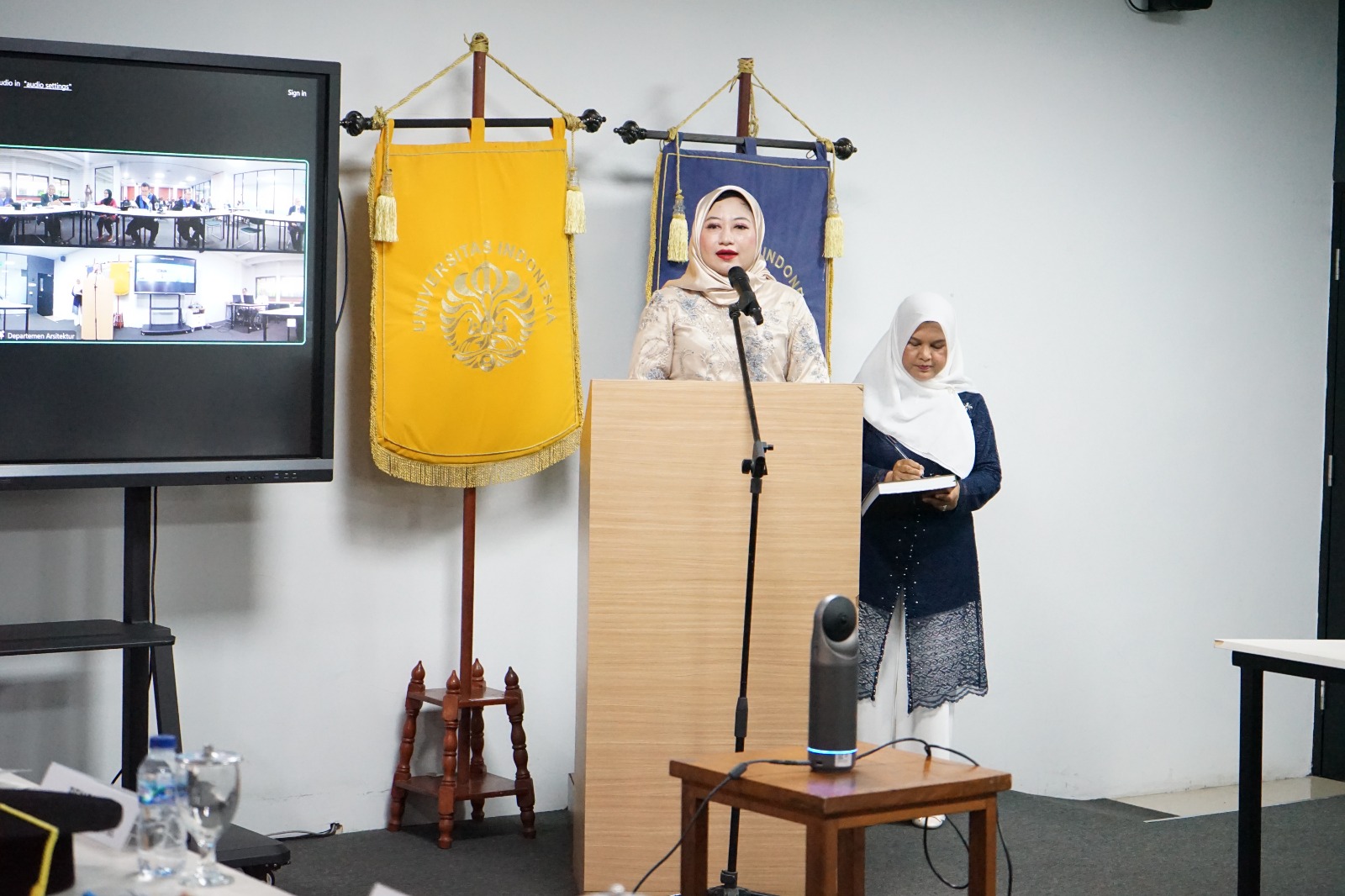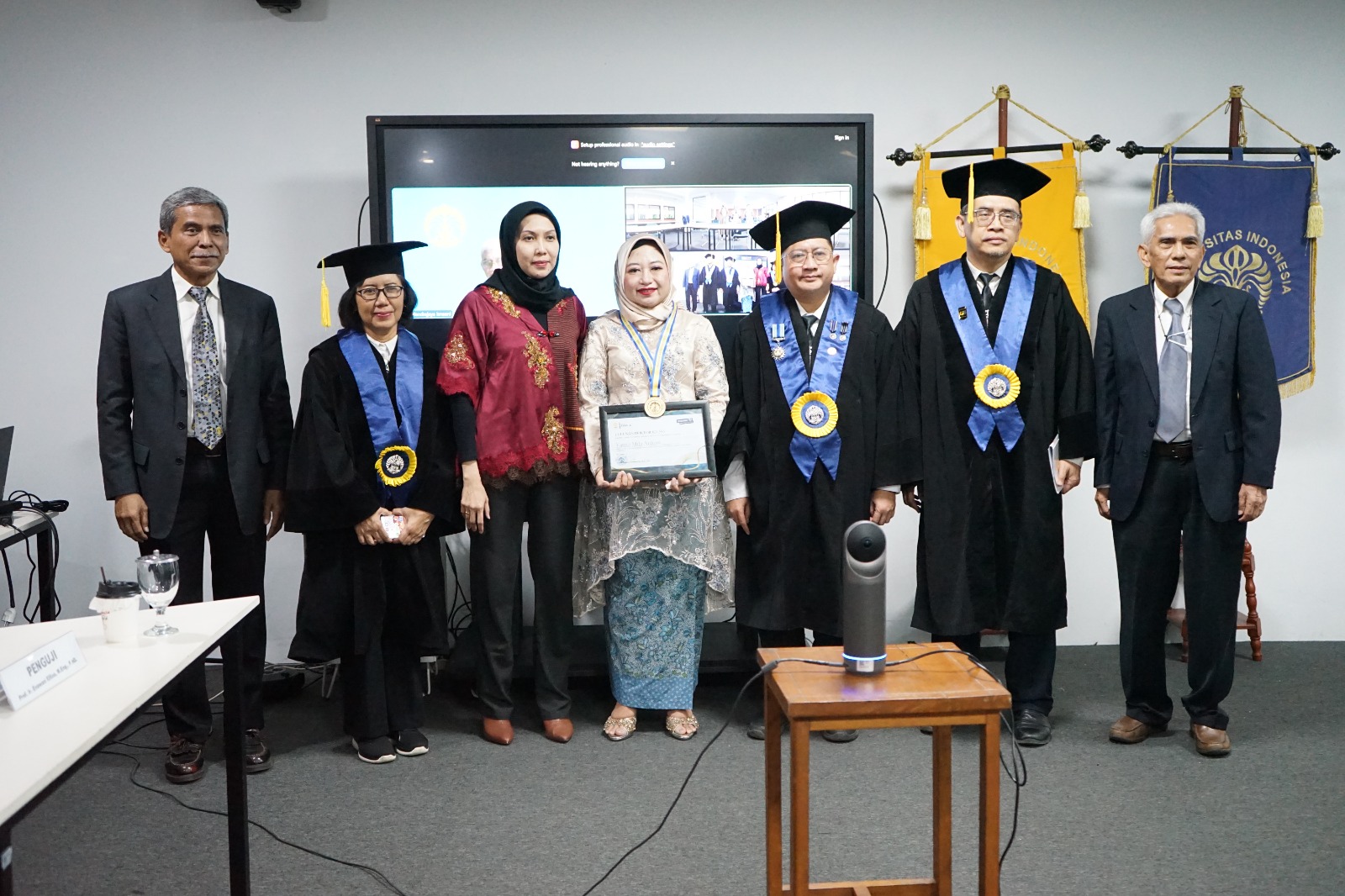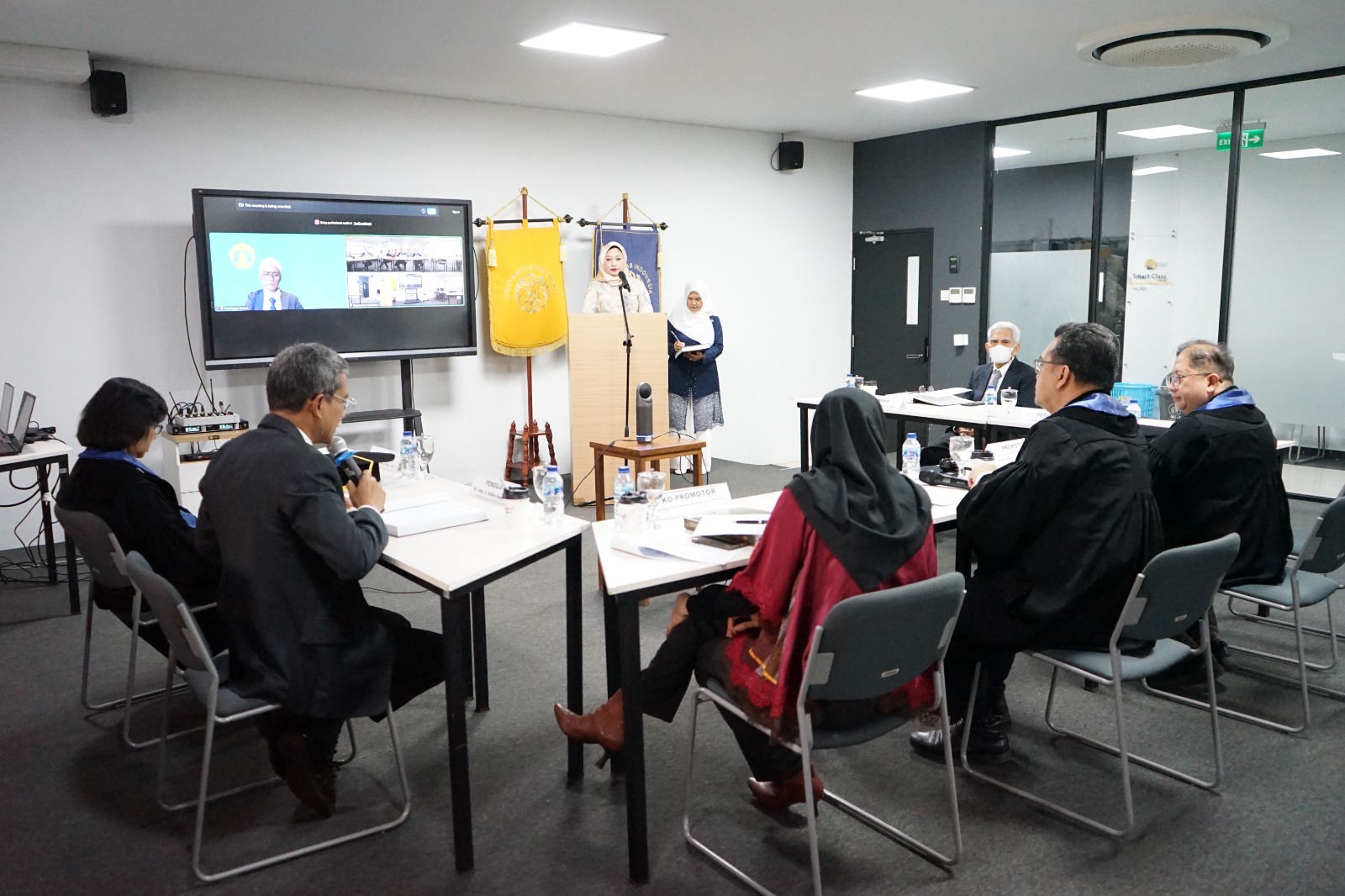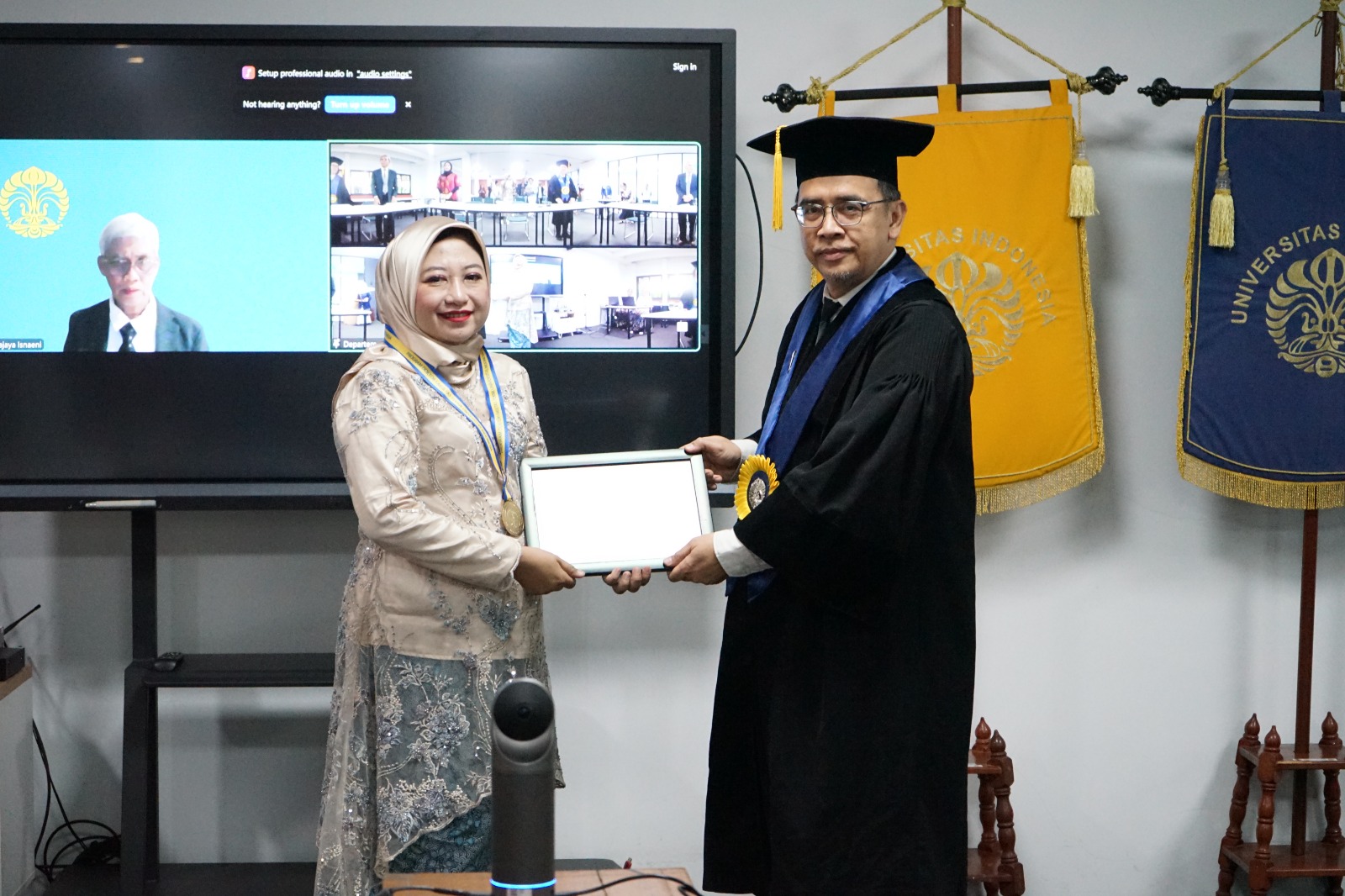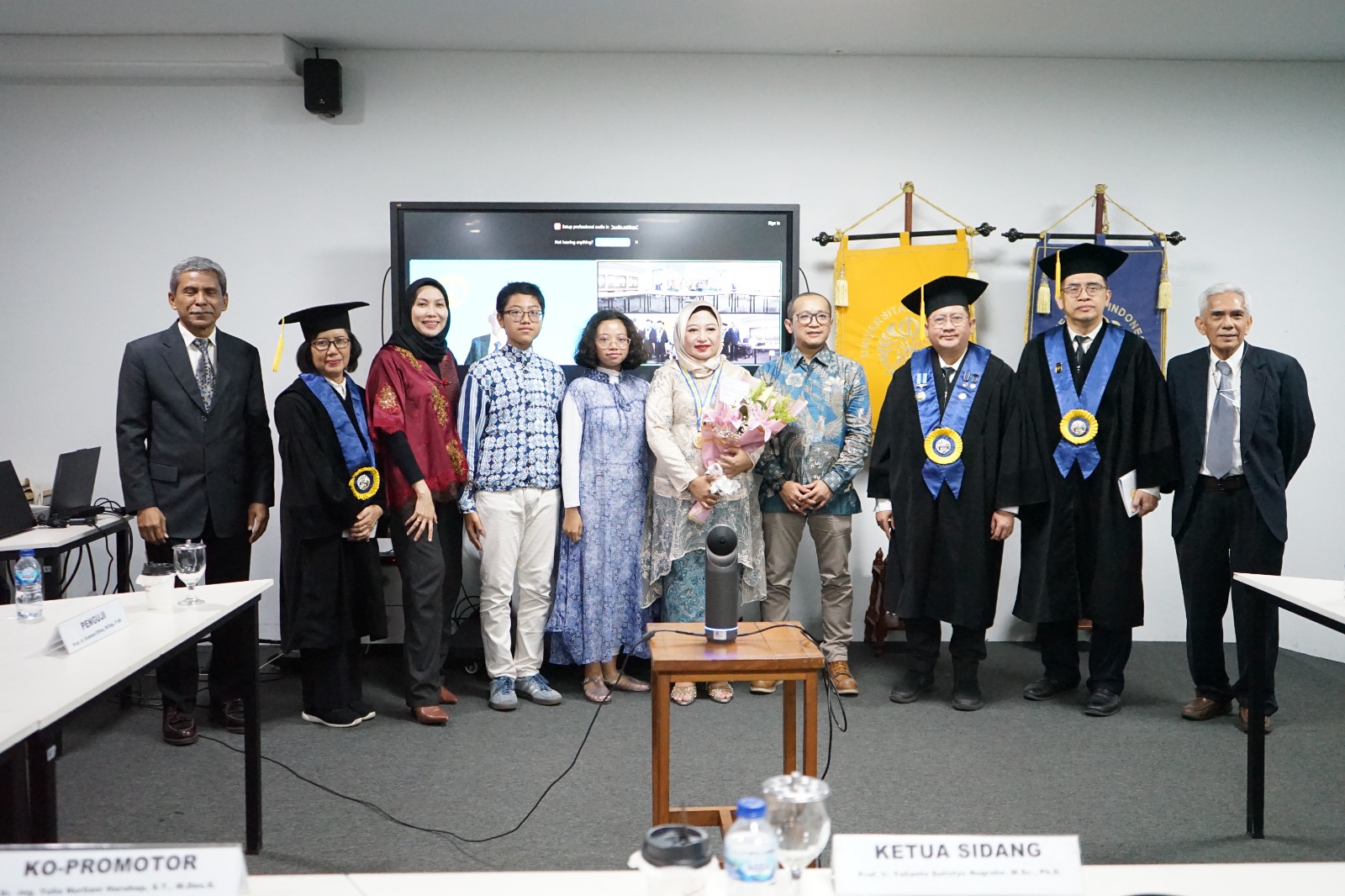Yanita Mila Ardiani, a doctoral candidate from the Department of Architecture at FTUI, researched differences in mindset and knowledge regarding the meaning of preserving cultural heritage buildings, particularly concerning authenticity and significance in the context of obsolescence and novelty. Her dissertation, Discourse on Obsolescence and Novelty in the History of Architectural Conservation of Cultural Heritage in Indonesia, was presented during her open doctoral defence at FTUI on Thursday (9/1) in the Smart Classroom GK 304.
Yanita discussed the history of conservation issues and the accompanying discourse on obsolescence across various eras in Indonesia using qualitative descriptive methods, case studies, and historical evidence. “Conservation activities are gaining momentum globally, including in Indonesia. The vast number of historical buildings in Indonesia makes conservation work—whether for traditional or Dutch colonial buildings—increasingly complex,” Yanita stated at the beginning of her presentation.
Conservation work has given rise to several challenges, including the shifting roles of architects into conservationists, the governance of conservation projects by stakeholders, and the influence of power dynamics in politics from the colonial to post-colonial periods, which have shaped conservation practices over time.
Yanita concluded that those in power are the ones who produce the discourse. During the colonial era, European perspectives on the obsolescence of antiques were used as a tool for propaganda to “win the hearts” of the indigenous population. In the post-colonial era, particularly during the New Order, the government became the producer of knowledge on obsolescence and novelty in conservation, leaning on colonial conservation laws despite having a modern outlook. After the Reformasi era, the discourse evolved under the Cultural Heritage Law but, in some cases, still adhered to UNESCO’s authenticity standards, even though architects began to embrace novelty through their interventions.
“Architects should serve as mediators and decision-makers, not archaeologists or experts from other fields because building conservation practices require architect-conservators. Therefore, a Conservation Practice Guideline for architects is urgently needed,” Yanita concluded.
The Acting Dean of FTUI, Prof. Ir. Mahmud Sudibandriyo, MSc., Ph.D., expressed his hopes: “I hope this research enables stakeholders, including architects and relevant institutions, to work collaboratively in conservation efforts. Ultimately, this can lead to better recommendations for conservation practices in Indonesia moving forward.”
Yanita successfully defended her dissertation and earned her doctorate with a GPA of 3.79. She is the 28th doctoral graduate from the Department of Architecture and the 585th from the Faculty of Engineering, Universitas Indonesia.
Prof. Ir. Yulianto Sulistyo Nugroho, M.Sc., Ph.D., chaired the doctoral defense. Prof. Dr. Kemas Ridwan Kurniawan, S.T., M.Sc., was the supervisor, and Dr. Ing. Yulia Nurliani Harahap, S.T., M.Des.S., was the co-supervisor. The examination committee included Prof. Ir. Evawani Ellisa, M.Eng., Ph.D., and Dr. Ing. Ir. Dalhar Susanto, Ir. Hendrajaya Isnaeni, M.Sc., Ph.D., Azrar Hadi H. Ramli, Ph.D., and Dr. Johannes Widodo.
***
Office of Public Communication
Faculty of Engineering, Universitas Indonesia

